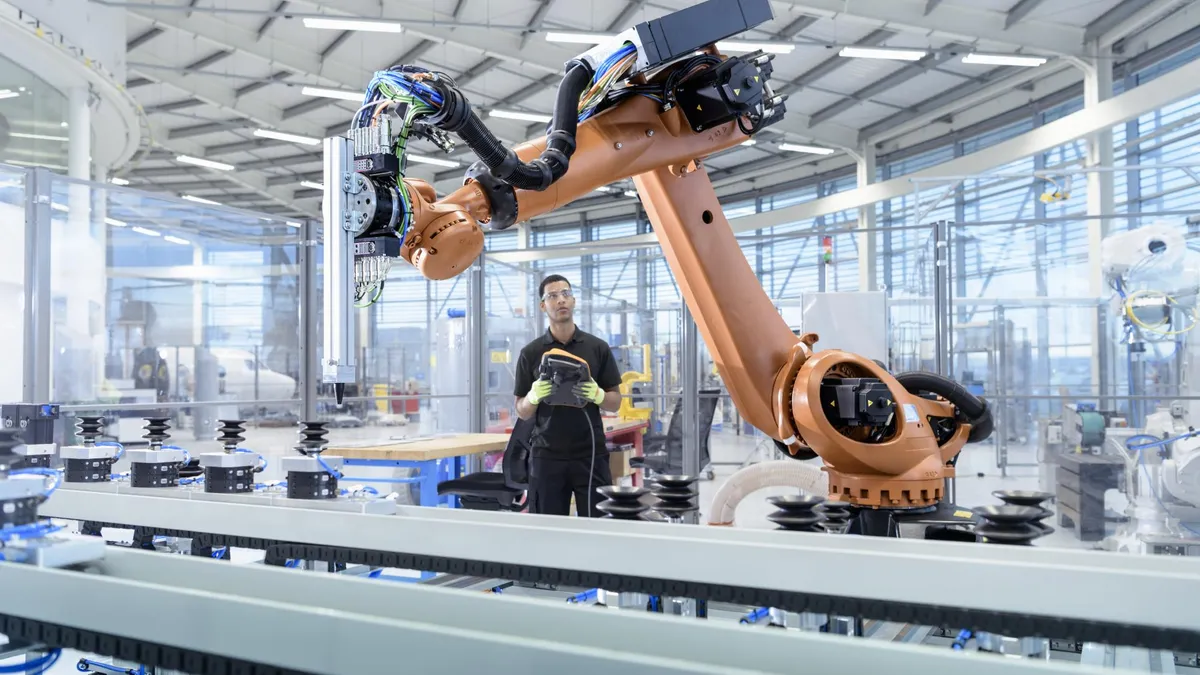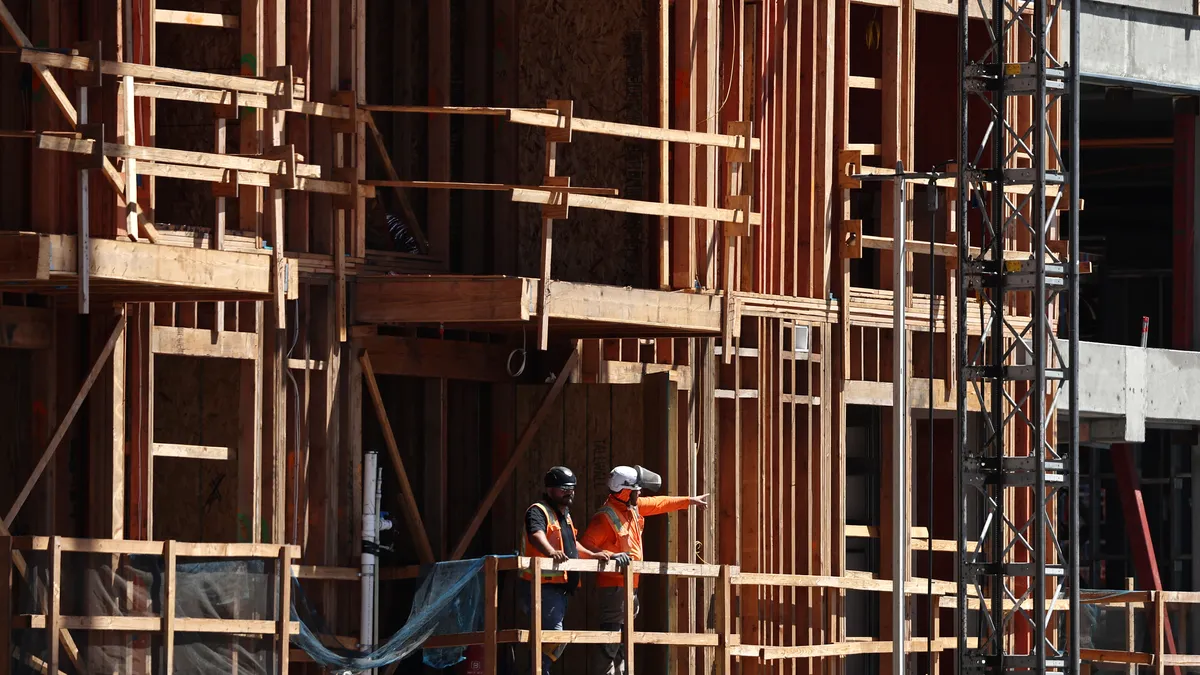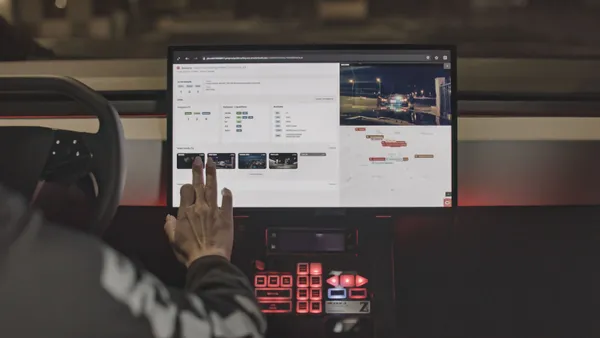Dive Brief:
- Cities should take "strategic steps" to prepare their economies and their workforces for increased automation of jobs in the coming decades, according to a report from the National League of Cities (NLC).
- Equipping future workers with needed skills through education will aid in filling high demand jobs that will have a low probability of being automated.
- "There needs to be a stronger focus on soft skills in the workforce, up-skilling people for the jobs of tomorrow, and exploring far-reaching income support solutions," Brooks Rainwater, senior executive and director of NLC’s Center for City Solutions, said in a statement. "At the end of the day, this story is about people, and what we need to do to ensure that every American has access to a fulfilling, good-paying job that puts food on the table."
Dive Insight:
The report, entitled "Assessing the Future of Our Work: Automation and the Role of Cities," notes various studies have indicated that automation will affect many occupations in the future, although there appears to be little consensus on how much will happen. One study NLC cites says 47% of American jobs will become automated, while another says that number is 9%.
But the report also notes that around 22% of the U.S. labor force is "underutilized," which means that people are working beneath their skill set, are underemployed or are earning less than they could be. This gap serves as a call to arms for cities to invest more in education and equitable access to things like public transportation to enable easier access to jobs. One identified aspect of being a smarter city is a better-educated population.
The growth of autonomous vehicle (AVs) in cities has been the cause for concern for some elected officials, who have questioned the vehicles' impact on the labor force, not only on the likes of those who drive for ride-hailing apps but also those who drive trucks. Both Uber and Lyft are looking to build out their own AVs, while Tesla has also indicated it wishes to start a ride-sharing network based around AVs.
The report also warns of the possible displacement of between 39 and 73 million workers due to automation, with some 48-54 million needing to change careers. These data points echo a public statement from Kansas City, MO Chief Innovation Officer Bob Bennett earlier this year, when he warned that cities who do not adapt risk being left behind in what he called a "digital Rust Belt."











